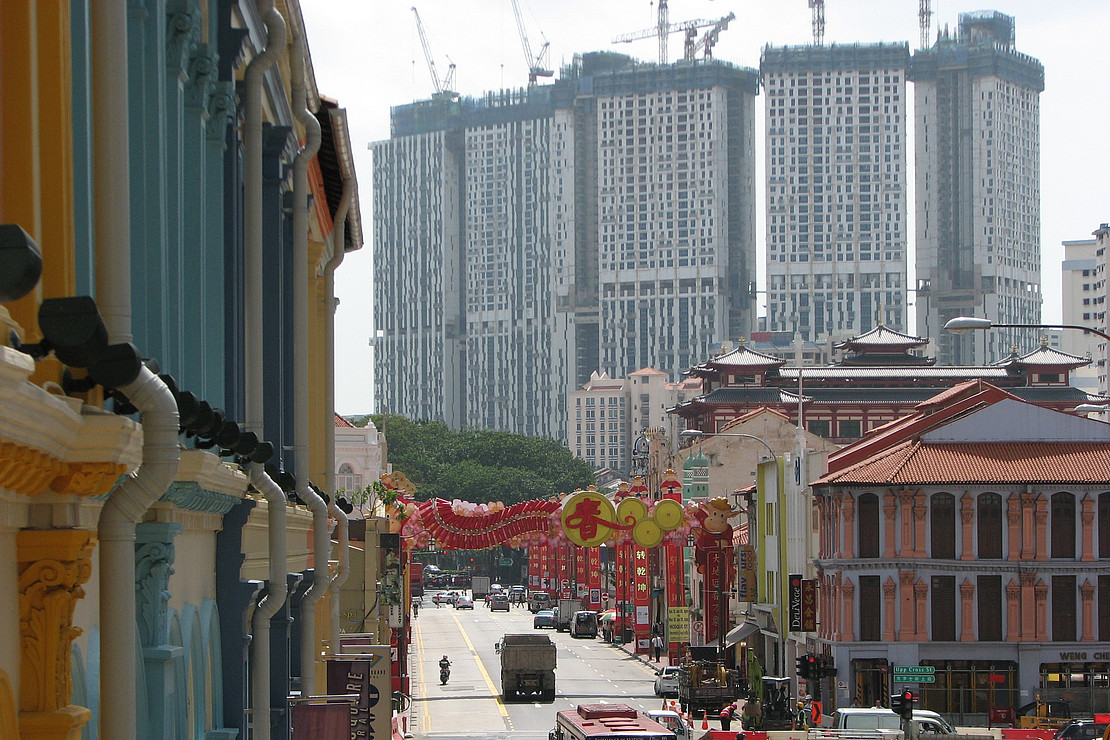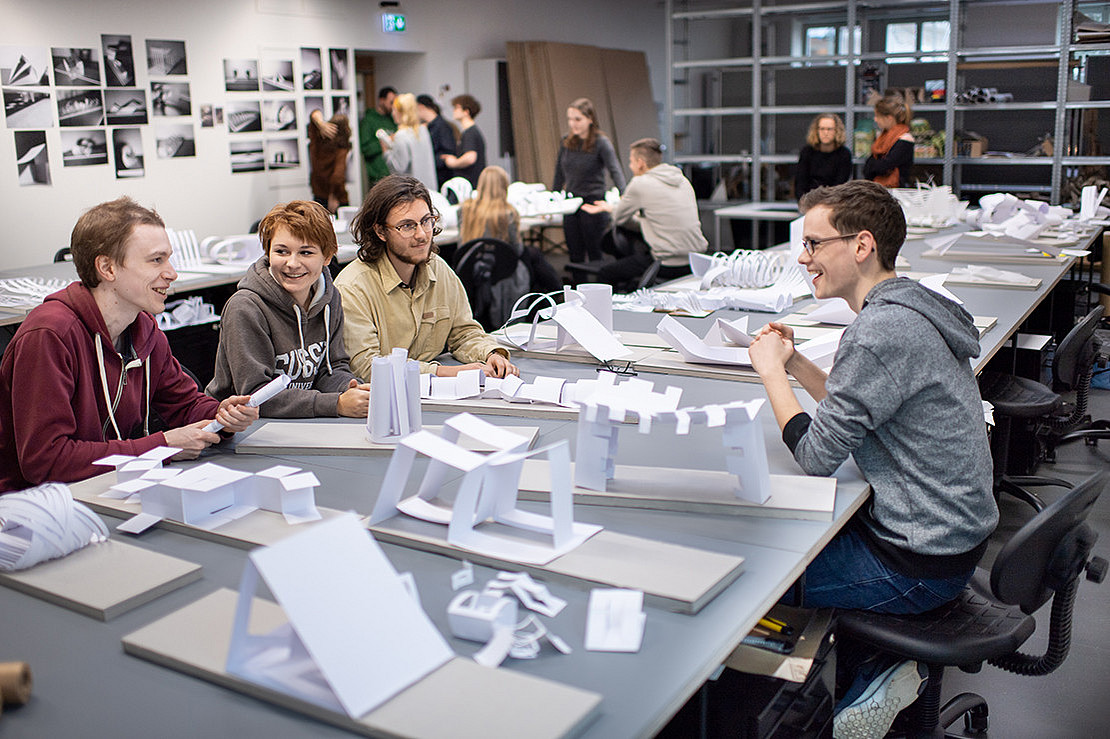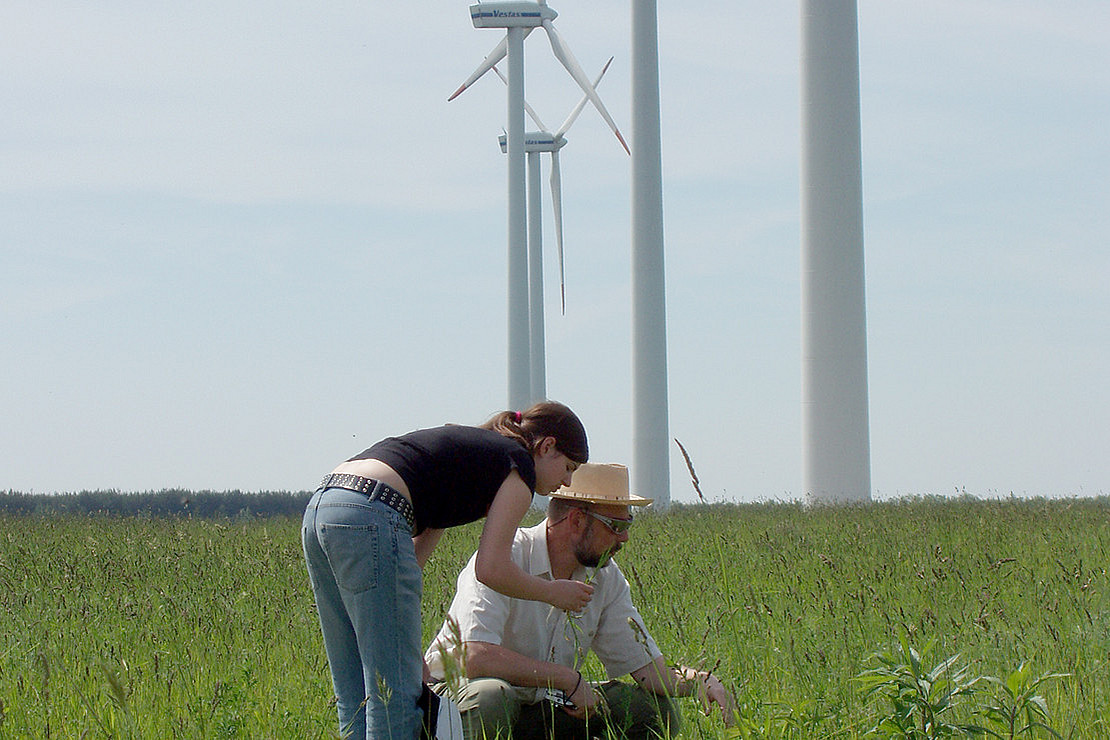Study structure
This page contains automatically translated content.
The particular aim of the 4-semester Master's degree course is to create the opportunity to develop an individual study profile with an orientation towards the diverse and changing requirements of the highly differentiated professional fields in terms of methods and content.
The deepening of planning and design skills in complex and interdisciplinary contexts forms the core of the curriculum throughout the entire course of study. Teaching content and forms are based on the unity of teaching and research and, in addition to specialist knowledge, impart methodological and system competence as well as strategic competence.
Master's specialization ST - Urban Planning / Urban Design
Focus: The development of skills for in-depth spatial analysis and the development of urban design competence, including architectural and landscape planning issues
Special learning objectives: Design skills in the area of new planning, renovation and additions to architectural and spatial structures, reflection in the discourse of urban planning theories and guiding principles
Master's specialization NRE - Nachhaltige Raumentwicklung / Sustainable Urban and Regional Development
Focus: Development of skills for analyzing social transformation processes and influencing them through urban and regional development approaches.
Special learning objectives:
- Competence to critically reflect on formal and informal instruments of spatial planning for post-fossil spatial production
- Competence to analyze and scientifically sound recommendations for action for sustainable transformation at different spatial scales and actor levels
Master's specialization BSM - Urban Regeneration and Urban Management / Bestandsentwicklung und Stadtmanagement
Thefocus is on developing skills for dealing appropriately with existing built structures, which make up by far the largest part of the built environment.
The in-depth study of existing development and urban management includes questions about the qualification, upgrading and long-term attractiveness of existing districts in the face of social change and examines the necessity and usefulness of approaches to comprehensive redevelopment. It deals with the prerequisites and consequences of interventions in spatialized social structures in the city. Central to this are questions about actors and target groups as well as the possibilities of an equally effective, efficient and fair implementation of planning interventions in existing buildings.
The specialization has strong links to political, economic, social, cultural and environmental sciences. In addition, it deals intensively with everyday public action and governance issues.


